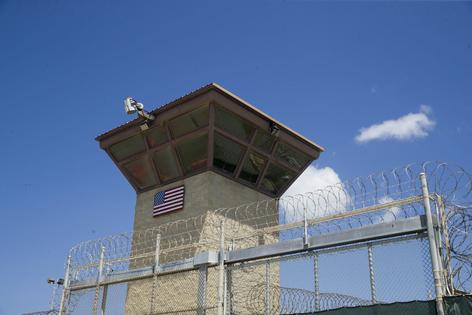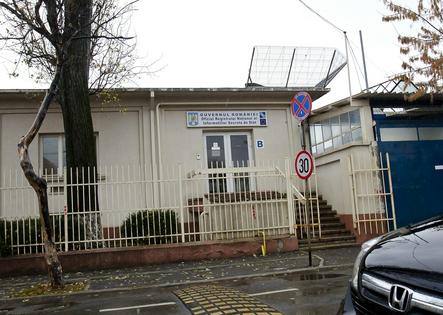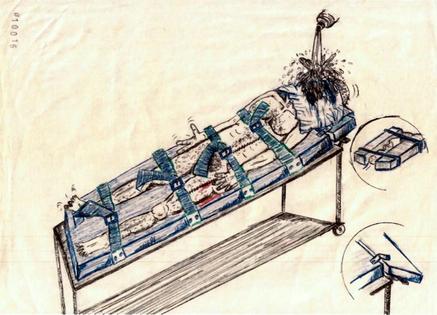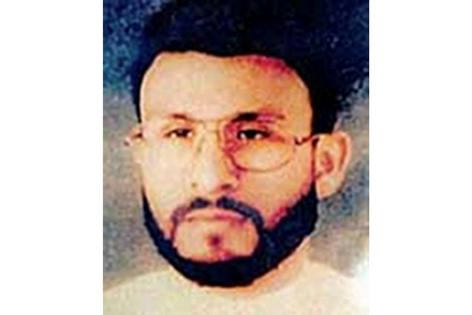Trump inherits the Guantánamo prison, complete with 4 ‘forever prisoners’
Published in Political News
President Joe Biden’s record of handling the U.S. military prison at Guantánamo Bay, Cuba, is decidedly mixed. He succeeded in reducing the detainee population he inherited by more than half, but he compounded problems in the military commissions that the Bush administration had invented in the wake of the 9/11 attacks to try people captured in the “war on terror.” Now all the problems at Guantánamo are again President Donald Trump’s.
When Biden took office in 2021, there were 40 prisoners. Today there are 15, the lowest number since the first 20 Muslim men and boys captured in Afghanistan were airlifted to the base on Jan. 11, 2002.
Biden left Trump four people the U.S. will not release but also cannot put on trial – the so-called “forever prisoners.” He also left intact the troubled military commissions system, with three pending criminal cases against a total of six detainees.
In December 2021, former chief military defense attorney Brig. Gen. John Baker testified before the Senate Judiciary Committee: “It is too late in the process for the current military commissions to do justice for anyone. The best that can be hoped for at this point … is to bring this sordid chapter of American history to an end.” Baker made clear that the only viable option is to resolve the cases with plea bargains for the defendants.
There are three cases that have not yet gone to trial – the 9/11 case with four defendants facing charges for their connections with the attacks, the USS Cole bombing in October 2000 with one defendant and the Bali bombing in October 2002 with one defendant.
The 9/11 and USS Cole cases have been stuck in the pretrial phase since Biden was Barack Obama’s vice president. In the summer of 2024, a breakthrough in the 9/11 case appeared imminent: Prosecutors and defense lawyers for three of the four defendants reportedly reached plea-bargain agreements. Khalid Sheikh Mohammad – the alleged “mastermind” of the attacks – Walid bin Attash and Mustafa Hawsawi agreed to plead guilty and accept life sentences in exchange for the government taking the death penalty off the table. There was no deal for the fourth 9/11 defendant, Ammar al-Baluchi.
The deals were approved on July 31 by the top military officer overseeing the Guantánamo commissions, retired Brig. Gen. Susan Escallier. But two days later, Biden’s defense secretary, Lloyd Austin, stepped into the process and overrode Escallier – whom he had appointed. Austin announced that the plea deals were revoked.
The judge, Air Force Col. Matthew McCall, decided to schedule plea hearings for early January. But after some legal back-and-forth that forced a stay, he had to cancel them. Biden left the case against three 9/11 defendants in limbo.
In mid-January 2025, I made my sixteenth reporting trip to Guantánamo. I came for closing arguments on a motion in the 9/11 case that seeks to suppress statements that Ammar al-Baluchi made to the FBI in January 2007. That was four months after he and 13 others were transferred to Guantánamo from CIA black sites where they were held for years. The litigation to suppress those statements started in 2019.
In Chapter 10 of my book, “The War in Court: Inside the Long Fight against Torture,” I detail how the litigation on this suppression motion made public previously unknown details and under-acknowledged horrors of the CIA’s rendition, detention and interrogation program.
These closing arguments were the culmination of six years of litigation on the key question in the 9/11 case: Does torture matter in the pursuit of justice in the military commissions?
Of the 780 people ever detained at Guantánamo, 540 were released during the presidency of George W. Bush, who established the detention facility. Obama, who signed an executive order on his second day in office pledging to close Guantánamo within a year, released 200.
In his first term, Trump pledged to keep the facility open. The only man to leave Guantánamo during Trump’s first term was Ahmed al-Darbi, who was repatriated to Saudi Arabia in 2018 to serve out the remainder of his sentence from a 2014 plea bargain agreement.
When Biden took office, he said that he supported shutting down the military prison at Guantánamo. In the early years of his presidency, there was a slow stream of transfers, mostly people who had been cleared for release long ago and were freed.
In Biden’s last months, the pace of transfers quickened. In December 2024, a Kenyan detainee, two Malaysian members of al-Qaida who had pled guilty the previous January, and a Tunisian man who had been in Guantánamo since the day the facility was opened were all repatriated to their countries of origin and freed. In January 2024, 11 Yemenis were transported from the prison to Oman to be resettled.
The Biden administration had also planned to repatriate a severely disabled Iraqi detainee, Abd al-Hadi al-Iraqi, to serve out his plea-bargained sentence in a Baghdad prison. But a federal judge blocked that transfer, ruling that al-Iraqi would not get necessary medical treatment in Iraq and might be subject to abuse there.
Al-Iraqi is one of the 15 that Biden left behind. Three of them – a Libyan, a Somali and a stateless Rohingya – have long been cleared for release. Their continuing detention without charges highlights a key element of the Guantánamo problem: No one can be released unless the U.S. government finds another country willing to accept them.
One of the remaining detainees, Ali Bahlul, is serving a life sentence for conspiracy to commit war crimes. Six others, including the four 9/11 defendants, are awaiting their trials.
There are also four detainees whom the government refuses to transfer but cannot put on trial for lack of evidence.
These so-called “forever prisoners” include Abu Zubaydah, a Saudi-born man of Palestinian descent who was taken into CIA custody in 2002 and was used as the guinea pig for the CIA torture program. The government long ago conceded that Abu Zubaydah was not a top leader of al-Qaida – in fact he was not even a member. But he will not be released because he knows how he was treated by the CIA, and that treatment remains highly classified.
The newest forever prisoner is one of the original 9/11 defendants, Ramzi bin al-Shibh; in September 2023, he was declared mentally incompetent to stand trial. Now he is uncharged, unreleased and untreated for his psychological maladies that were caused by the torture he endured in CIA black sites.
When Biden pulled U.S. troops out of Afghanistan in August 2021, he claimed to have ended America’s longest war – and repeated this claim in a January 2025 speech. But the Guantánamo prison remains open, and as long as it is, the “war on terror,” which first put U.S. troops in Afghanistan in 2001, is not over.
How Trump will deal with Guantánamo is an open question. If he focuses on the death penalty, he will press ahead with military commission trials like his predecessors, hoping for unanimous guilty verdicts and death sentences. If he prioritizes cutting wasteful government spending, he will release additional detainees and allow the three plea bargain agreements to go into effect.
No one I spoke to during my last trip was willing to predict what a second Trump term might bode for Guantánamo – except that it won’t be closed.
This article is republished from The Conversation, a nonprofit, independent news organization bringing you facts and trustworthy analysis to help you make sense of our complex world. It was written by: Lisa Hajjar, University of California, Santa Barbara
Read more:
20 years after 9/11, the men charged with responsibility are still waiting for trial – here’s why
How the largest association of psychologists in the US colluded in torture
‘The Mauritanian’ rekindles debate over Gitmo detainees’ torture – with 40 still held there
Lisa Hajjar does not work for, consult, own shares in or receive funding from any company or organization that would benefit from this article, and has disclosed no relevant affiliations beyond their academic appointment.




































































Comments